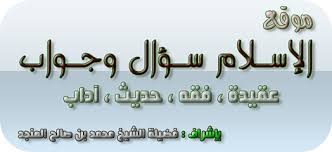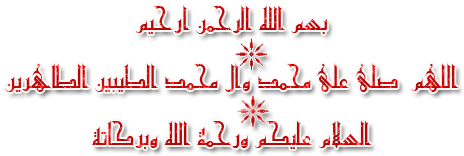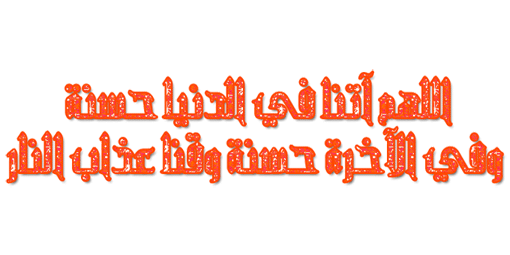A COLLECTION OF FATWAAS FROM ARAB AND NON ARAB SCHOLARS :
AUDIO FATWAS INCLUDE:
FATWAH FROM MASJID NABAWI MADEENAH (ENGLISH)
LESSONS FROM MUSJID AL HARAM MAKKAH
"ORIGINAL FATWAH WITH ENGLISH SUBTITLES"
FATWAH OF SHAYKH AASIM AL HAKEEM PRESENTER OF "ASK ZAD JEDDAH "
DR MUHAMMAD SALAH PRESENTER OF "ASK HUDA TV"
MUFTI MUHAMMAD ISMAEEL MENK
DR ZAAKIR NAIK "PEACE TV "
TEXTS INCLUDE:
SHAYKH ABDULLAH BIN ABDUL AZEEEZ BIN BAAZ
SHAYKH MUHAMMAD BIN SAALIH AL UTHYMEEN
SHAYKH SAALIH AL MUNAJJID (ISLAM QA)
MUFTI MUHAMMAD TAQEE UTHMANI(PAKISTAN)
DARUL IFTAA QATAR (ISLAMWEB)

Should he fast with his own country or with any country that sights the new moon?
26-06-2014
Question 106487
What should I do if the moon is sighted in some Muslim countries but the country where I am working completes the month of Sha’baan and Ramadaan as thirty days? What is the cause of the people’s differences in Ramadan?
Answer
Praise be to Allah.
You have to stay with the people of your country. When they fast, then fast with them, and when they break the fast then break the fast with them, because the Prophet (peace and blessings of Allaah be upon him) said:
“The fast is the day when you fast, and the breaking of the fast (al-iftaar) is the day when you break the fast, and the sacrifice (al-adha) is the day when you offer the sacrifice.”
And because dissent is evil. So, you have to be with the people of your country. So, when the Muslims in your country break the fast, then break the fast with them, and when they fast then fast with them.
As for the cause of differences, the reason is that some people see the new moon and some do not see it, then those who have seen the new moon may be trusted by others who follow their sighting, or they may not be trusted, and hence differences arise. One country may sight it and rule accordingly, and fast and break the fast on that basis, whereas another country may not be convinced of this sighting and may not trust the other country, for many reasons, political and otherwise.
What the Muslims must do is fast all together when they see the new moon, and break the fast when they see it, because of the general meaning of the words of the Prophet (peace and blessings of Allaah be upon him):
“When you see the new moon then fast, and when you see the new moon then break the fast, and if it is too cloudy then complete the number of days as thirty.”
If they are all certain of the validity of the moon sighting, and that it is real and proven, then they must fast and break the fast accordingly, but if the people differ and do not trust one another, then you have to fast with the Muslims in your country, and break the fast with them, in accordance with the words of the Prophet (peace and blessings of Allaah be upon him):
“The fast is the day when you fast, and the breaking of the fast (al-iftaar) is the day when you break the fast, and the sacrifice (al-adha) is the day when you offer the sacrifice.”
It was proven from Ibn ‘Abbaas (may Allaah be pleased with him) that when Kurayb told him that the people of Syria had started fasting on a Friday, Ibn ‘Abbaas said: We saw it on Saturday, and we will carry on fasting until we see the new moon or we complete thirty days. He did not follow the sighting of the people of Syria because Syria is far away from Madeenah and there may be a difference in moonsighting between the two.
He (may Allaah be pleased with him) thought that this was a matter that was subject to ijtihaad. You have a good example to follow in Ibn ‘Abbaas and the scholars who followed him and said that you should fast with the people of your country and break the fast with them. And Allaah is the Source of strength. End quote.
Shaykh ‘Abd al-‘Azeez ibn Baaz (may Allaah have mercy on him).
https://islamqa.info/en/answers/106487/
ANOTHER FATAWA WITH THE QUESTION IS ALSO GIVEN BY SHAYKH IBN BAAZ (R.A)IN THE FOLLOWING :
FASTING IN THE COUNTRY YOU RESIDE
“Question:
If the beginning of the month of Ramadhan has been confirmed in one of the Islamic countries, like the Kingdom of Saudi Arabia, and that has been announced, however in the country in which I live, the beginning of Ramadhan has not been announced, what is the ruling? Do we fast merely by the confirmation in the Kingdom or do we break our fast and fast with them (the people where we are) whenever they announce the beginning of the month of Ramadhan, and likewise regarding the beginning of Shawwal – ‘Eid day? What is the ruling if there is a difference in the matter between two countries? May Allah reward you with a good reward on behalf of the Muslims and us.
Answer:
It is (obligatory) upon the Muslim to fast with the country where he is and to break his fast with them. This is due to the statement of the Prophet:
“The fast is the day you all fast, breaking the fast is on the day that you all break the fast and scarifies (Al-Adhha) is on the day that you all scarifies.”
At-Tirmithi no.697.
(Ash-Shaykh Ibn Baz)”
(Fatawa Islamiyah – Islamic Verdicts, Vol. 3, Pgs. 240,241, Darus Salaam, Riyadh, Saudi Arabia).

Call for the Uniting of Moon Sightings everywhere with that of Makkah? – Shaykh Ibn Uthaymeen
Q. 393. There are some people who call for the uniting of moon sightings everywhere with that of Makkah, in order to unite the Muslim community over the start of the blessed month of Ramadan and other months. What is Your Eminence’s opinion on this?
A. From the point of view of astronomy, this is impossible, because the appearance of the new crescent, As Shaikhul-Islam Ibn Taimiyyah, may Allah have mercy on him, said, differs (from place to place) according to the consensus of those who are knowledge- able in this field.
Since it differs, then what is necessitated by the evidence from the Qur’an and the Sunnah, and scientific evidence, is that every country must have its own ruling.
As for the evidence from the Qur’an and the Sunnah, Allah, the Most High says:
“So, whoever of you sights (the crescent on the first night of) the month (of Ramadan, i.e. is present at his home), he must observe SAum (fasts) that month”
[Al-Baqarah 2:185]
So, if it happened that a people in the farthest part of the earth did not witness the month, i.e., the new crescent, while the people of Makkah had seen the new crescent, how could the address in this Verse be applied to those who had not witnessed the new crescent?!
The Prophet صلى الله عليه وسلم said:
“Fast when you see it and break the fast when you see it” [1]
So, if the people of Makkah see it, how can we oblige the people of Pakistan and those Asians who live beyond it to fast, when we know that the new crescent has not appeared in their region, and the Prophet صلى الله عليه وسلم: made fasting conditional upon the sighting of the new crescent?
The scientific evidence is the correct analogy, which it is not possible to refute, for we know that the dawn appears in the eastern corner of the earth before the western side.
So, if the dawn appears on the eastern side, is it incumbent upon us to fast while we are still in the night? The answer is no. If the sun sets in the east, while were still in daylight, is it permissible for us to break our fast? The answer is no.
Therefore, the new crescent is exactly like the sun, except that the timing of the new crescent is monthly and the timing of the sun is daily, and He Who said:
“It is made lawful for you to have sexual relations with your wives on the night of As-Saum (the fasts). They are Libas [i.e., body- cover, or screen, or Sakan (i.e. you enjoy the pleasure of living with them) for you and you are the same for them. Allah knows that you used to deceive yourselves, so He turned to you (accepted your repentance) and forgave you. So now have sexual relations with them and seek that which Allah has ordained for you (offspring), and eat and drink until the white thread (light) of dawn appears to you distinct from the black thread (darkness of night), then complete your Saum (fast) till the nightfall. And do not have sexual relations with them (your wives) while you are in I ’tikaf (i.e., confining oneself in a mosque for prayers and invocations leaving the worldly activities) in the mosques. These are the limits (set) by Allah, so approach them not. Thus does Allah make clear His Ayat (proofs, evidences, lessons, signs, revelations, verses, laws, legal and illegal things, Allah’s set limits, orders, etc.) to mankind that they may become Al-Muttaqun.”
[Al-Baqarah 2:187]
ALLAH is the One Who said:
“Whoever of you sights (the crescent on the first night of) the month (of Ramadan, i.e., is present at his home), he must observe Saum (fasts) that month”
[Al-Baqarah 2:185]
So, what is necessitated by the evidence from the Qur’an and the Sunnah, as well as scientific evidence, is to make a special judgement for each place regarding fasting and breaking the fast, and to link them on the base of the perceptible sign which Allah has declared in His Book, and His Prophet, Muhammad has declared in his Sunnah, and that is the sighting of the moon and the sighting of the sun or the dawn.
[1] Reported by Al-Bukhari in the Book of Fasting, in the Chapter: The Words of the Prophet صلى الله عليه وسلم: When you see the new crescent (1909); and by Muslim in the Book of Fasting, in the Chapter: The Obligation to Fast the Month of Ramadan Upon Sighting the New crescent (1081).
REFRENCE:
Source: Fatwa Arkanul Islam, Volume 2 – Shaykh Uthaymeen, Dar-us-Salam English Publication.
Fatawa Arkan-ul-Islam By Shaykh Muhammad ibn Salih Al-Uthaymeen. The Fatawa presented in these volumes have been selected from the whole collection of the Fatawa of the learned Shaikh Muhammad bin Salih Al-‘Uthaymeen and translated into the English language. These Fatawa are distinguished by their reliance upon the Book of Allah, the Most High, the Sunnah of His Messenger (S) and the opinions of the scholars who are known for their investigative powers. We hope that these Fatawa will provide the people great help, knowledge and understanding of the finer points of religious aspects.

THE SIGHTING OF THE NEW MOON IN THE COUNTRY DOES NOT OBLIGED ALL THE COUNTRIES TO JUDGE ACCORDING TO IT
“Question:
The appearance of the new moon of Ramadhan or the new moon of Shawwal varies between the Islamic countries. Therefore, do the Muslims fast when it is sighted in one of these countries?
Answer:
The People of knowledge differ among themselves on the issue of the new moon. Among them there are those who think that if the sighting of the new moon of Ramadhan is confirmed in any one place in an Islamic sanctioned manner, then this obliges all the Muslims of fast. They also say that if the sighting of the new moon of Shawwal is confirmed (in any place), all of the Muslims are obliged to break the fast.
This is well-known view of the Mathhab (School of Fiqh) of Imam Ahmad. Based upon this, if the new moon is sighted in the Kingdom of Saudi Arabia, for example, it is obligatory on all of the Muslims in all of the lands to act according to this sighting in fasting Ramadhan and breaking the fast in Shawwal. The evidence that they use for this position is the generality of the Statement of Allah, the Most High:
“So, whoever among you witnesses the month, then let him fast it.”
Al-Baqarah 2:185.
They also use the generality of the Prophet’s statement:
“When you see it (the new moon of Ramahan), then fast, and when you see it (the new moon of Shawwal), then break your fast.”
Al-Bukhari no. 1906.
Among the scholars are those who say that fasting with the new moon of Ramadhan and breaking the fast in Shawwal is not obligatory except for whoever sees the new moon or is in the same sight zone (i.e., the same area of the sighting) as someone who saw it.
This is because the rising points of the new moon differ, as is agreed upon by the people who know (its science). Thus, if the sighting zones differ, it is obligatory that every land judge according to its own sighting and the lands that are in the same sighting zone of the new moon should follow it. If a land is not in the same sighting zone, it should not follow another land’s sighting.
This statement is the one chosen by Shaykhul-Islam Ibn Taimiyyah, may Allah have mercy on him. His proof for this view is in the Statement of Allah, the Most High:
“So, whoever among you witnesses the month, then let him fast it.”
Al-Baqarah 2:185.
He also based this upon the Prophet’s statement:
“When you see it (the new moon of Ramahan), then fast, and when you see it (the new moon of Shawwal), then break your fast.”
Al-Bukhari no. 1906 and Muslim no. 1080.
In other words, he used the same evidence that is used by those who hold the view that there is general, comprehensive obligation regarding the ruling of the new moon. However, the angle of proof with Ibn Taimiyyah in this Verse and this Hadith is different, as (he held the view that) the ruling is related to one who witnesses and sees the moon.
This dictates that whoever does not witness or see it, then he is not obliged to follow its judgement. Therefore, based on this, if the sighting zones differ, the judgements of the new moon are not confirmed by generalization.
There is no doubt that this is a strong position proving this point and it is supported by examination and analogy.
(Ash-Shaykh Ibn ‘Uthaimin)”
The above is the official position given by the noble Shaikh, Muhammad Bin Salih Al Uthaimin. In this, he clearly showed what is the strong opinion in the matter.
(Fatawa Islamiyah – Islamic Verdicts, Vol. 3, Pgs. 232, 234, Darus Salaam, Riyadh, Saudi Arabia, 2002).
Fatawah Islamiyah A collection of Islamic rulings issued by the most renowned scholars of the world.
From the Noble Scholars: Shaykh 'Abdul-'Aziz bin 'Abdullah bin Baz, Shaykh Muhammad bin Salih Al-'Uthaimin & Shaykh 'Abdullah bin 'Abdur-Rahman Al-Jibreen. Along with: The Permanent Committee and the decisions of the Fiqh Council.Collected by: Muhammad bin 'Abdul-'Aziz al-Musnad
Published by: Dar-us-Salam Publications


If countries differ with regard to when Ramadaan begins and when the day of ‘Arafah is, with whom should I fast?
Question
Because of some personal circumstances we moved to Pakistan, where a lot of things are different, such as the time of prayer, etc. I want to ask you: I am keen to fast on the day of ‘Arafah, but the Hijri date in Pakistan is different from the date in Saudi: when the date in Pakistan is the 8th of the month, it is the 9th in Saudi. Should I fast on the 8th – which is the 9th in Saudi – or should I fast according to the date in Pakistan?.
Answer
Praise be to Allah.
Shaykh Ibn ‘Uthaymeen (may Allaah have mercy on him) was asked: what if the day of ‘Arafah is different because of the moon being sighted at different times in different countries? Should we fast according to the moon sighting in the country where we are or according to the moon sighting in Al-Haramayn (the two Holy Sanctuaries)?
He replied: This is based on a difference of opinion among the scholars: Is there only one moon sighting for the whole world or does it vary according to when the moon rises in different places?
The correct view is that it varies according to when the moon rises in different places. For example, if the moon is sighted in Makkah, and today is the ninth, and it is sighted elsewhere one day before Makkah, and the day of ‘Arafah in Makkah is the tenth for them, it is not permissible for them to fast on this day because it is Eid.
Similarly if it so happens that they sight the moon after Makkah, and the 9th in Makkah is the 8th for them, then they should fast the day that is the 9th for them, which is the 10th in Makkah. This is the correct view, because the Prophet (peace and blessings of Allaah be upon him) said:
“When you see it (the new moon) fast and when you see it break your fast.”
Those who did not see the moon in their own location have not seen it. Just as people are unanimously agreed that the times for dawn and sunset vary according to their own location, so too the months are also worked out by location, just like the daily timings.
Majmoo’ al-Fataawa, 20.
And he (may Allaah have mercy on him) was asked about some people who worked in the Saudi embassy in a foreign country, who said that they were having a problem concerning the fast of Ramadaan and the fast on the day of ‘Arafah. The brothers there had split into three groups:
One group said: we will fast with Saudi and break the fast with Saudi.
Another group said: we will fast with the country where we are living and break the fast with them.
The last group said: we will fast Ramadaan with the country where we are living, but we will fast the day of ‘Arafah with Saudi.
They asked the Shaykh to provide them with a detailed answer concerning the Ramadaan fast and fasting the day of ‘Arafah, whilst noting that for the past five years, in the country where they were living neither Ramadaan nor the day of ‘Arafah had been observed on the same days as in Saudi; their Ramadaan started one or two days after it had been announced in Saudi, and sometimes three days after.
He replied:
In the name of Allaah, the Most Gracious, the Most Merciful
The scholars (may Allaah have mercy on them) differed concerning the issue when the moon is sighted in one part of the Muslim world and not in another: do all the Muslims have to act on the basis of that, or only those who sighted it and the people who live in the same region, or only those who sighted it and the people who live under the same government? There are many different points of view.
The most correct view is that the matter should be referred to those who have knowledge of it. If the moon rises at the same point for two countries they become like one country, so if it is sighted in one of them that ruling applies to the other. But if the rising points differ, then each country has its own ruling. This is the view favoured by Shaykh Al-Islam Ibn Taymiyah (may Allaah have mercy on him); this is the apparent meaning of the texts of the Qur’aan and Sunnah and what is implied by analogy.
In the Qur’aan it says (interpretation of the meaning):
(He wants that you) must complete the same number (of days), and that you must magnify Allaah [i.e. to say Takbeer (Allaahu Akbar: Allaah is the Most Great)] for having guided you so that you may be grateful to Him”
“So whoever of you sights (the crescent on the first night of) the month (of Ramadan i.e. is present at his home), he must observe Sawm (fasts) that month, and whoever is ill or on a journey, the same number [of days which one did not observe Sawm (fasts) must be made up] from other days. Allaah intends for you ease, and He does not want to make things difficult for you.
[Al-Baqarah 2:185]
What is implied by this verse is that whoever does not see it is not obliged to fast.
In the Sunnah, the Prophet (peace and blessings of Allaah be upon him) said: “When you see it (the new moon) then fast, and when you see it, break your fast.” What is implied by this hadeeth is that if we did not see it we are not obliged to fast or to break the fast.
With regard to analogy, the times for starting and ending the fast each day should be worked out in each country on its own, according to the local times of sunrise and sunset. This is a point on which there is scholarly consensus.
So you see the people in east Asia starting their fast before the people of west Asia, and breaking their fast before them, because dawn breaks for the former before the latter, and the sun sets for the former before the latter.
Once this is established with regard to the times for starting and ending the daily fast, it also applies to the start and end of the monthly fast. There is no difference between them.
But if many regions come under the same government, and the ruler gives the command for the fast to start or end, then his command must be followed, because this is a matter of scholarly dispute but the command of the ruler dispels that dispute.
Based on the above, you should fast and break your fast along with the people of the country where you are living, whether that is in accordance with your country of origin or not. Similarly on the day of ‘Arafah you should follow the country where you are living.
Written by Muhammad al-Saalih al-‘Uthaymeen, 28/8/1420 AH.
Majmoo’ al-Fataawa, 19.

ABIDING BY THE SIGHTING OF THE NEW MOON IN ONE'S COUNTRY OF RESIDENCE
Fatwa No: 307525
Fatwa Date:13-12-2015 - Rabee' Al-Awwal 2,
Question
Assalaamu alaykum, one of my uncles who lives as a joint family with his two brothers is fasting and celebrating ‘Eed with Saudi Arabia, claiming that he holds the opinion of universal moon sighting, and he is fasting on the day of ‘Eed in the local region, telling them that he has to differ from falsehood, and he has not fasted any voluntary fasting before.
So, in the same house, his other two brothers are celebrating ‘Eed on one day, and he is celebrating it the other day. Does this mean breaking the unity (of the Muslims), and is it haram? Or it is just a difference of opinion that we should leave alone? Please advise.
Answer
All perfect praise be to Allah, The Lord of the Worlds. I testify that there is none worthy of worship except Allah, and that Muhammad sallallaahu `alayhi wa sallam ( may Allaah exalt his mention ) is His slave and Messenger.
The scholarly view adopted by Islamweb, as far as the different moon-sightings is concerned, is that such a difference is considerable and accepted by the Sharee’ah and that the residents of each country should abide by the moon-sighting of their country of residence and not go against it.
If your paternal uncle does not adopt the position suggesting that the beginning of fasting and the end of fasting may vary in different countries and chooses to follow the other scholarly view suggesting that the moon-sighting in one country is binding upon all countries, then he should abide by that position without distortion.
Those who adopt the opinion that the moon-sighting in one country is binding on all Muslims in the Muslim world hold that the Muslims are obliged to fast and end fasting upon sighting the moon in any given country, and not particularly in Saudi Arabia.
According to this opinion, if the sighting of the new moon (of Ramadan) is proven in any part of the Muslim world (in the manner prescribed in the Sharee’ah), then all Muslims are obliged to fast. If your paternal uncle adopts this scholarly view, then he should not confine himself to following only the moon-sighting of Saudi Arabia; rather, he is then obliged to abide by the moon-sighting of any given country, even if the moon is not sighted in Saudi Arabia, and the Muslims therein have not started fasting yet. He is also obliged to end his fasting upon the sighting of the moon of the month of Shawwaal in other than Saudi Arabia, even though the people in Saudi Arabia have not ended the fasting yet.
Moreover, it is wrong to break his fast openly while the people of his community are still fasting. Even if he sighted the moon of the month of Shawwaal himself and his testimony is not accepted, then he should still conceal the fact that he has broken the fast and not break his fast openly, as advised by the scholars.
The Maaliki scholar Ad-Dardeer may Allaah have mercy upon him wrote:
“In this case, he (the one who sighted the moon of Shawwaal himself and his testimony is not accepted) should not openly show that he is differing from them; he should not break the fast openly by means of eating, drinking or having sexual intercourse with his wife when he holds a different position regarding the moon-sighting (of the new moon of Shawwaal).
It is prohibited to break his fast in public, even if he is safe from being seen by others lest he might be labeled as dissolute. However, he is obliged to hold the intention of breaking his fast because it is the 'Eid day for him.
If he breaks his fast openly, then he must be advised and reproached if he is known to be righteous; otherwise, he should be subject to Taʻzeer (discretionary punishment).”
[Ash-Sharh Al-Kabeer]
An-Nawawi may Allaah have mercy upon him wrote, “He may break the fast upon sighting the moon of Shawwaal in secret so that his religiousness is not questioned and to safeguard himself against the punishment of the ruler.”
[Al-Majmoo’]
In brief, the action of your paternal uncle is unsupported by the opinions of any of the scholars from our point of view; he should be wisely and kindly advised in this regard.
Allah knows best.
https://www.islamweb.net/en/fatwa/307525/abiding-by-the-sighting-of-the-new-moon-in-ones-country-of-residence
MOONSIGHTING ANNOUNCEMENTS IN SAUDIA ARABIA
By Mufti Taqi Usmani
Q.) I am writing this letter to you with regards to the controversy surrounding the sighting of the crescent moon over Saudi Arabia on Friday 18 December 1998 and the subsequent commencement of the month of Ramadan in mosques throughout England.
My question is: Can such a sighting be acceptable in the face of astronomical data which suggested that on Friday 18 December 1998 the crescent was invisible due to the Sun, earth and moon lying in one plane? The data also suggested that the earliest possible sighting was on Saturday 19 December 1998.
A.) Thank you for your letter asking me about the issue of sighting of moon at the occasion of Eid-ul-Fitr and about the acceptability of evidence despite its being impossible according to the astronomical calculations. In fact, the contemporary scholars have different views on this point.
I personally believe that if it is certainly proved that the moon is not yet born and its sighting is not at all possible on a particular evening, the evidence of only a few persons should not be taken as a proof of existence of moon at the horizon and the Ramadan or Eid should not be started on that basis alone unless there is evidence of people in overwhelming numbers that they themselves have seen the moon in which case it may be said that there was something wrong in the astronomical calculation. But in the absence of such an evidence, the only evidence of two or some more persons should not be relied upon.
This view of mine is based on the ruling given by a large number of jurists that if the Horizon is clear the evidence of two persons is not enough for proving a crescent moon unless it is established by the evidence of a great number of people about whom it is not is not imaginable that they may have connived to give a false evidence. The requirement of such an overwhelming evidence in this case is based on the common sense that if the horizon is clear the moon must have been seen by a large number of people and merely the evidence of two persons is doubtful. By the analogy, if the astronomical calculation proved that new moon cannot be sighted on a particular day the evidence of a few people should not be relied upon.
However, there are some contemporary scholars who totally disregard the astronomical calculations in the matter of sighting the moon and base their view on the famous Hadith of the Holy Prophet, Sall-Allahu alayhi wa sallam
"Keep fast after seeing it (moon) and give up fasting after seeing it (moon)."
Their argument is that the Shariah does not base its findings on the astronomical calculations because it is meant for all the Muslims the majority of whom have no means to know the results of such calculations.
Therefore, they say, reliance can be placed only on the evidence of the persons who claim to have seen the moon. This is the view which has found favor with the Saudi authorities who are responsible for declaring the sighting or otherwise of the moon.
Although I do not endorse this view, nor do other scholars of many Muslims countries accept it, yet the issue being a matter of Ijtihad, the decision given by Saudi authorities is enforceable in their own jurisdiction. That is why, despite having a different view, we validate the Hajj and Ramadan etc, as announced by the Saudi authorities [for applicability within Saudi Arabia].
The Muslims living in other parts of the world should desirably arrange their own system of sighting the moon, as is done in Pakistan and many other countries, because the system adopted in Saudi Arabia is not based on the stronger view. However, as I mentioned earlier this is not an issue which has been specifically mentioned in the Holy Qur'an or Sunnah in express terms but it is a matter of Ijtihad, therefore, we should not hold that any decision taken on that basis, whether in Saudi Arabia or in any other country, is totally against Shariah and the worship or celebrations held on that basis are invalid.
This is my humble opinion regarding this issue and according to me the Muslims living in UK etc. should preferably make their own arrangement for sighting of the moon.






No comments:
Post a Comment